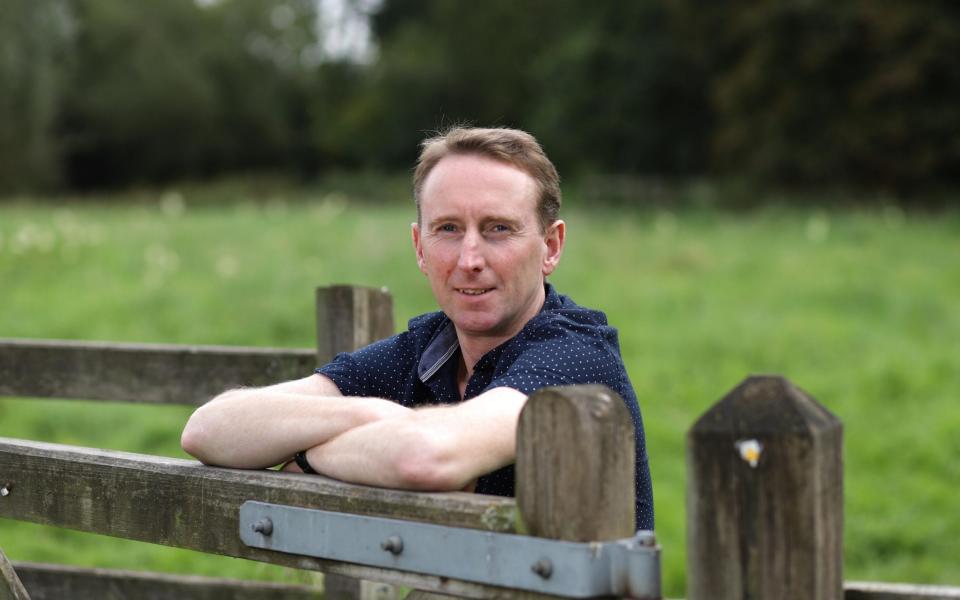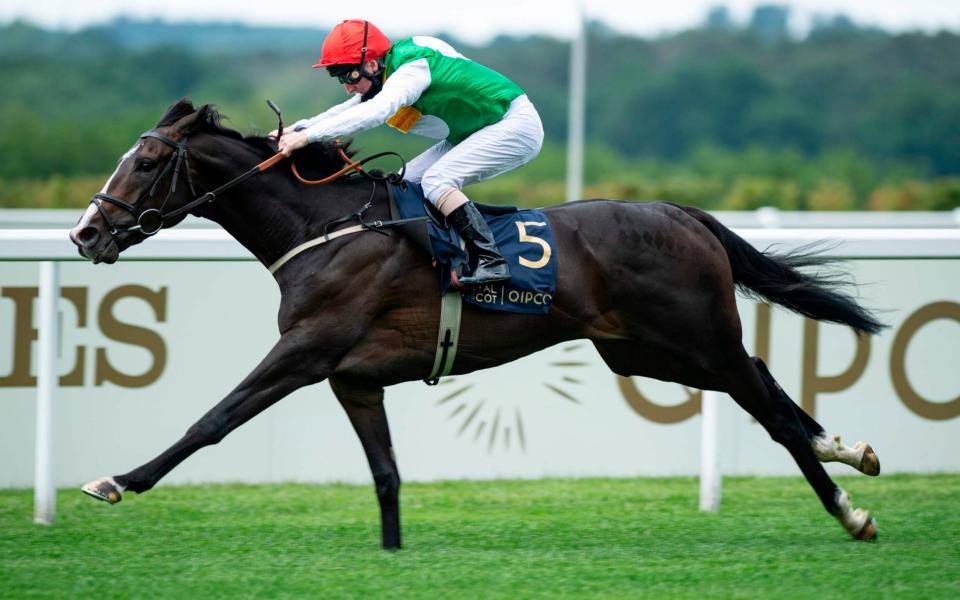Martin Dwyer interview: 'If Pyledriver were to win the Leger it would be a great story'

Martin Dwyer might have been born within sight of Aintree Racecourse but for a man inspired to ride by the cowboy films he watched as a child, the jockey has not done too badly; a Derby on Sir Percy and an Oaks on Casual Look.
On Sunday, however, a third Classic beckons when he rides the favourite Pyledriver, a colt who attracted zero interest when he went through the ring as a yearling with a £10,000 reserve, for his father-in-law William Muir in the 243rd Pertemps St Leger at Doncaster.
Win, lose or draw Pyledriver is already one of the feel good stories of this strange season. Increasingly the best horses are in a couple of yards but Pyledriver, one of the unusual suspects, is inching towards the accolade ‘best in class’ for middle distance colts of the Classic generation.
Muir, who trains 25 horses in Lambourn, has already sent out Pyledriver to win the King Edward VII at Royal Ascot and he repeated the feat in the Great Voltigeur, York’s Leger Trial. The Derby was a write-off when he was nearly knocked over at the start.
But even though he is no stranger to big race success Dwyer, 45, is equal part of the story. He was born in Fazackerley Hospital, the normal destination for jockeys injured in the Grand National, and would, eventually, achieve a lifetime’s ambition when riding in a bumper at his local racecourse.
“Aintree’s under-used,” he says. “They should bring back Flat racing there – imagine that on Saturday nights in the summer.”

Though his dad, also Martin, watched the television racing every Saturday, Dwyer’s fascination with horses began with John Wayne. “I loved how they could whistle up a horse from the saloon bar, jump on and gallop off flat out. I loved watching horses at speed,” he recalls.
On a holiday to North Wales aged 10 he saw some horses behind a wall in a field and, betting his mates 50p each that he would ride one, he hopped over the wall and launched himself at one. It kicked him in the chest back over the wall. His ‘friends’ thinking he had been killed, scarpered.
“I had a horse shoe bruise on my chest for a week,” he remembers before adding with dead-pan Scouse irony: “Everyone said it was lucky!”
He gained some work experience in a local yard and his father wrote a letter to Ian Balding, a trainer he knew to be good to apprentices, asking if he would take his son on.
Balding accepted him on a trial and when his father dropped him off at Kingsclere, Dwyer snr’s final advice was: “Don’t screw it up, son – I haven’t got the petrol money to come back down and fetch you.”
“It was a massive culture shock,” recalls Dwyer. “It was totally different to where I’d grown up. The second Sunday I was there Ian took me drag hunting. I thought I don’t even have a red jacket!
“It was round the back of Highclere Castle and my job was to run along and lay the drag. He said it would help my fitness. My trainers had holes in them, it was freezing cold and raining, and I had a canister of God-knows-what, fox-pee probably, and a sock to drag behind me.
“I set off an hour in front of the dogs. I got lost, the map disintegrated in the rain and the next thing is these dogs come over the hill, going mental, legging it towards me. I dropped the sock and climbed a tree. Ian galloped over and said ‘What are you doing?’ I replied I wasn’t coming down until the dogs had gone.
“Another chap said ‘Don’t you know? They’re not dogs they’re hounds [a critical distinction in the hunting world]. By this time I’m thinking they don’t even know what dogs are in this part of the country! It was a completely different world for me.”
It gave him the ability to be as comfortable with working class lads in a pub in Liverpool or royalty. “The Baldings taught me to mix with anyone,” he says.
They did not do a bad job of teaching him to ride either. In a sport where a tiny percentage of jockeys get to ride winners at the very top level, two Epsom Classics is testament to that and, maybe not as fashionable as he once was, in this game you cannot beat experience.
He had been riding a couple of seasons when his mum accompanied his father to a betting shop in Huyton to watch him ride in a race for the first time.
“She’d never been to a bookies’ in her life” explains Dwyer. “Some guy started slagging me off. She pointed out that it was her son he was being rude about. ‘I don’t care that he’s your son,’ he said, ‘He’s still ----ing useless.’ So mum hit him with her umbrella and she was kicked out of the shop.”

Ironically given that history, Dwyer’s son Joseph has been working in Ladbrokes in Marlborough since his A Levels were cancelled while he is waiting to start his law degree at university. “He knows nothing about racing,” says his dad. “But he’s done alright. I warned him he’d hear people slagging me off and he just replied ‘it’ll be no different to home then!’”
Dwyer has been married to Muir’s daughter, Clare, for 21 years. “I don’t think he was over the moon when I started dating her,” says the jockey.
“Clare is his only daughter and he was quite protective and probably not best pleased when she started going out with cheeky young Scouse lad. But I slowly wore him down. Her mum organised the wedding and I wasn’t even sure I was going to get an invitation until about a week before!”
Dwyer does not dwell on Pyledriver’s bad luck in the Derby. “You just put a line through that,” he points out. “That can happen in the Derby and I’m just so pleased that he bounced out of it and that it didn’t affect his confidence. There’s no point whinging about it.”
“If Pyledriver were to win the Leger it would be a great story. The dream is there and it would send out the message that you can buy a horse for £10,000 and compete at the top. What’s he already done is a good story for racing. The sales are coming up, it’s a buyer’s market – there might be a few more of these stories in a couple of years’ time.”

 Yahoo Sport
Yahoo Sport 





































